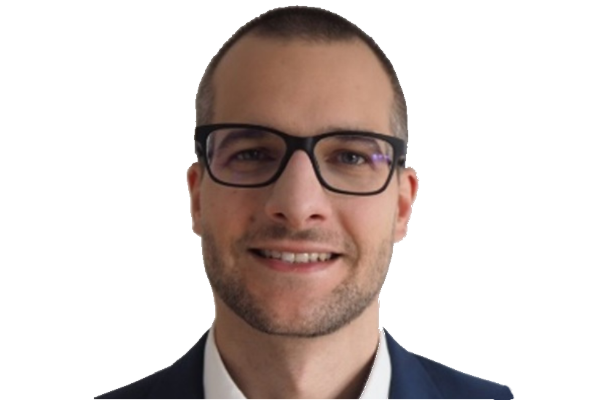Robert was looking for a job that would give him more satisfaction. He has been thinking about the Scrum Master profession for a long time. Today he fulfills this role, and he regrets that his professional change did not start earlier. What would he say to himself two years ago? What was the most difficult on the road to professional change? What advice does he have for people who want to change industries? Read the interview and get inspired by Robert's story.
You are currently working as a Scrum Master in German insurtech. What did you do before you changed business, and did this experience help you in the process of changing your career?
I think that the experience gained in all my works helped me change the field, and there were some of them. Since I was 18, I have been leaving for work in Great Britain during the holidays. As a high school student, I was not picky. I was catching every job, such as unloading trucks or working in a warehouse. When I got my bachelor's degree, English people started to appreciate me more, and I got my first administrative job, recruiting. Later I worked as a Traffic Clerk and then as Team Leader and Manager in various corporations. In my last thesis, I was involved in examining the legality of goods.
Interestingly, I am an opera singer by education. First, I studied administration, then law. Last year, I changed my mind and started studying at the Academy of Music. I love singing, but the current market situation has discouraged me from trying to make a living in this profession.
Why did you decide to change your profession?
I have always been ambitious and wanted to develop. What I did in my previous job did not give me enough satisfaction. In addition, I wanted decent earnings and an appropriate atmosphere.
Working in IT as a Scrum Master has been on my mind for some time. The human aspect is essential in this profession. I believe that as a graduate of the Academy of Music and the University of Gdańsk, I was able to combine empathy with complex logic thoroughly.
Was the course enough to feel confident in your new responsibilities and to find a job in your new profession?
The knowledge imparted by the mentor during the course was like a seed germinating at work. I gained a lot of theoretical knowledge that I could develop and learn in practice at work. I appreciate the mentor's commitment, her contribution, and the vast amount of knowledge she has. It was thanks to her that I believed that I had the potential to break free from the current stagnation and change my current job to a more agile-friendly one.
What was the most difficult for you on the way to your professional change, on the course, or at the beginning of a new job?
In the beginning, I faced the cheating syndrome - I lacked self-confidence and thought I was not qualified enough. The moment came when I believed that I was the right person for the role of Scrum Master because I had the course behind me, and, most of all, I felt it. I made corrections to my CV. I removed excess information from it and focused on transforming managerial elements into scrum values. Two weeks later, I had a new job.
What would you say to yourself 2 years ago?
First of all, I should believe in myself and my abilities and not lose this faith under the influence of someone's negative words or opinions. Second of all, I should appreciate how much I have already achieved.
What was it like to learn everything over and over again? How do you remember learning?
Combining the course and work was the hardest part. The training was intense and demanding, but I kept going because I was determined and confident that I wanted to change my mind and work as a Scrum Master.
How long has it been since you finished the course and found a job? How do you recall the period of looking for a job?
Right after completing the course, I was looking for a job very intensively. It took about two months. I only got refusals; thus, I lost faith that I could work as a Scrum Master. Then I gave up sending my CV for a while. In the meantime, however, things had worsened in my previous job, and I knew this was not the place for me. This became the power for re-application.
Can you advise people who want to change their professional path?
Choose a profession that will bring you joy. Of course, decent wages are essential nowadays, but following that alone may result in burnout. Find something you want to do that will make you happy to go to work in the morning. Check what the job in this position looks like and whether it is a job for you - go to the course, and talk to someone with experience.
The second important thing is self-confidence and faith in your abilities. When you look for a job, you may hear "no" 100 times, but someone will say "yes" in 101. Based on my case, I can say that even if you have less expertise in a given matter but at the same time have other necessary skills or relevant experience that you have gained in previous competitions, it is also worth applying!
How do you evaluate the decision to change your career?
The decision to change was right, and I don't regret it. It's a pity it didn't happen sooner! Today I think that I could immediately aspire to the role of Scrum Master. The issue of paying the bills is important, but I was able to use this time to learn what I want to do. I wanted to work in a company that would also believe in me and take care of my development - and this is where I work today.







